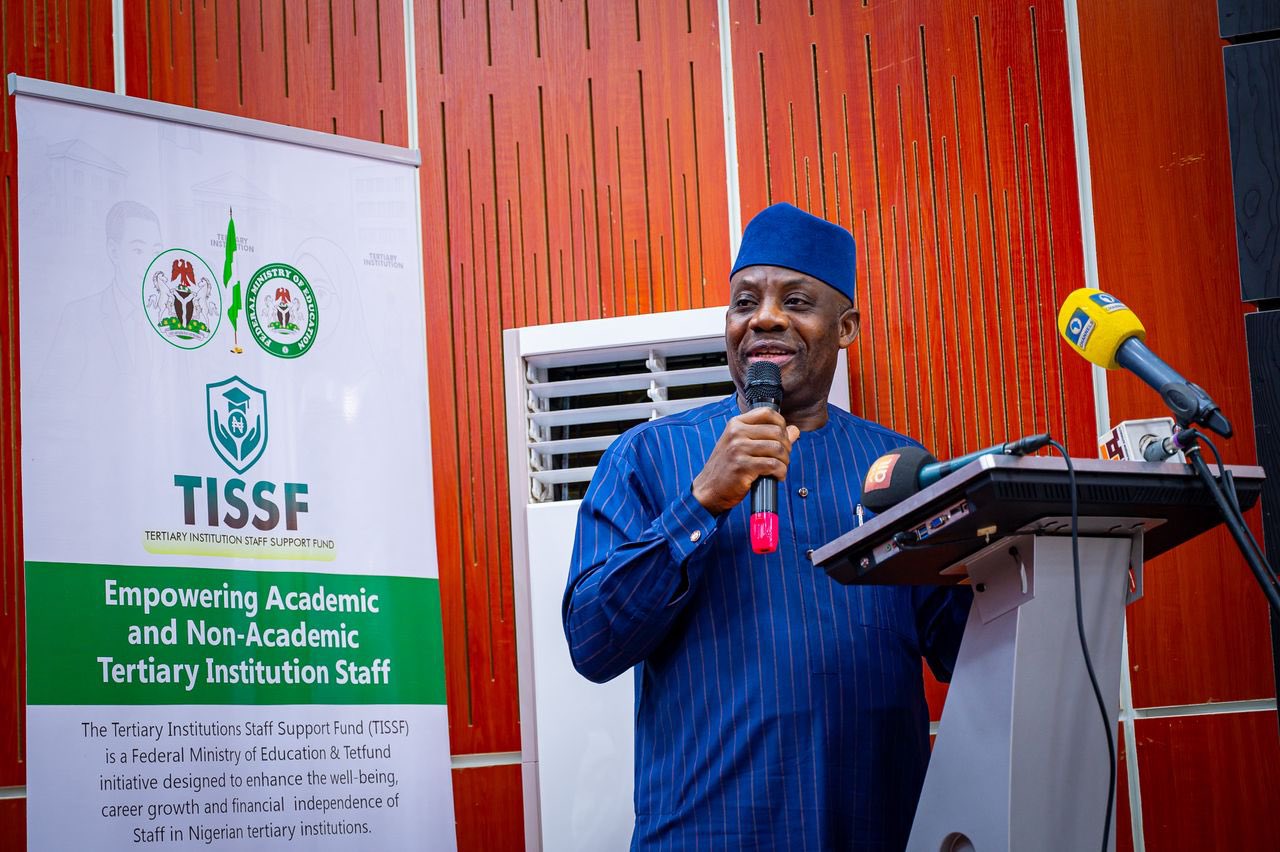The Federal Government has officially scrapped the 2022 National Language Policy, which mandated the use of mother tongue or local community languages as the medium of instruction from early childhood to Primary Six.
Speaking on Wednesday in Abuja, the Minister of Education, Dr. Tunji Alausa, announced that English will now serve as the language of instruction across all levels of education — from primary to tertiary institutions.
Alausa made this known at the opening of the Language in Education International Conference 2025, organised by the British Council. He explained that recent research conducted by the Ministry of Education showed that students taught in their mother tongues were performing poorly in national examinations such as WAEC, NECO, and JAMB.
“The National Policy on Language has been cancelled. English is now the language of instruction in our schools, from primary to tertiary levels,” Alausa stated. “Our findings revealed that over-reliance on mother tongue instruction has significantly weakened learning outcomes, with many students advancing through school without mastering key subjects.”
He also pointed out the practical difficulties of implementing the previous policy, given Nigeria’s linguistic diversity. “In some regions, pupils are taught in languages not native to them. For instance, in Borno State, the mother tongue is Hausa, but many speak Kanuri. In Lagos, areas like Ajegunle have mostly southeastern populations, while most teachers are from the southwest,” he explained
Read Also;
Trump’s threats: FG engages diplomats, rallies military commanders
The minister stressed that adopting a unified language of instruction would help bridge educational disparities and improve national exam performance.
British Council Country Director, Donna McGowan, said the conference aimed to strengthen English proficiency among Nigerian students and educators. She noted that the forum would allow policymakers and education stakeholders from across Africa, South Asia, and the UK to collaborate on improving language-based learning outcomes.
The scrapped 2022 National Language Policy was designed to promote indigenous languages and preserve Nigeria’s cultural identity. However, it struggled with implementation challenges such as inadequate teaching materials, lack of trained teachers, and the country’s complex linguistic landscape, which includes over 600 languages—29 of which are already extinct.




